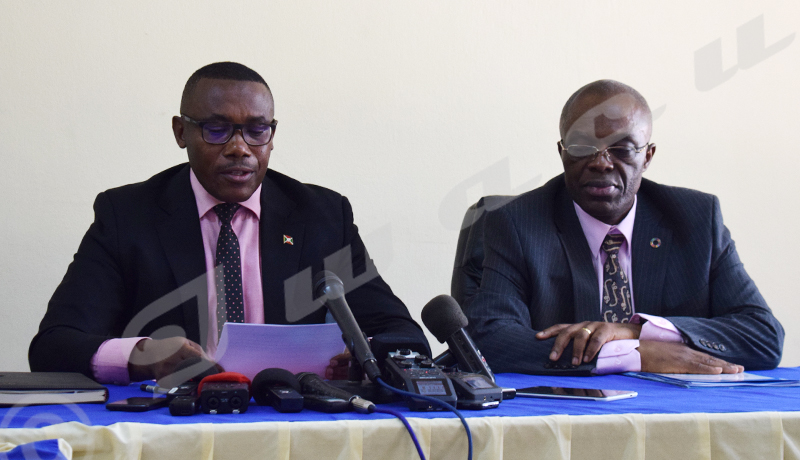While the world celebrates the Blood Donor Day each June 14th, the Ministry of Health calls on the population meeting the required conditions to donate blood.

Thadée Ndikumana (on the left) thanks and encourages blood donors
“There are various groups of people who often need blood transfusion such as mothers during labor, newborn babies, children under five, those who suffer from diseases such as AIDS, tuberculosis, malaria and hepatitis, and victims of accidents,…” says Thadée Ndikumana, Minister of Health and AIDS Prevention.
To satisfy the increasing number of patients in need of blood, the Ministry of Health makes available equipment to improve the quality and security of blood as well as materials used in blood transfusion.
The Ministry of Health, through the National Center of Blood Transfusion (CNTS) organizes the collection of blood from different blood transfusion centers throughout the country.
In 2018, CNTS collected more than 76,000 blood bags and plans a campaign for blood donation before students go on holidays.
“In the interest of achieving self-sufficiency, the Ministry of Health calls on the entire population fulfilling the conditions of donating blood to make this humanitarian gesture and encourages donors to do such a noble act regularly,” says Mr. Ndikumana.
As for Kazadi Walter Mulombo, Representative of the World Health Organization in Burundi, he says the need of blood to be transfused into patients has increased over the years in Africa. Many patients are victims of the blood shortage, he says.
Mr. Mulombo requests the Government of Burundi to take action.
“I urge the Government of Burundi and its partners to support voluntary blood donations to achieve universal health coverage,” says Mr. Mulombo.
Every June 14, countries around the world celebrate the Blood Donor Day. It was established in 2004 by the World Health Organization (WHO).
This day serves to thank voluntary, unpaid blood donors for their life-saving gifts of blood. It raises awareness of the need for regular blood donations to ensure that all individuals and communities have access to safe and quality-assured blood.



















 IWACU Open Data
IWACU Open Data

